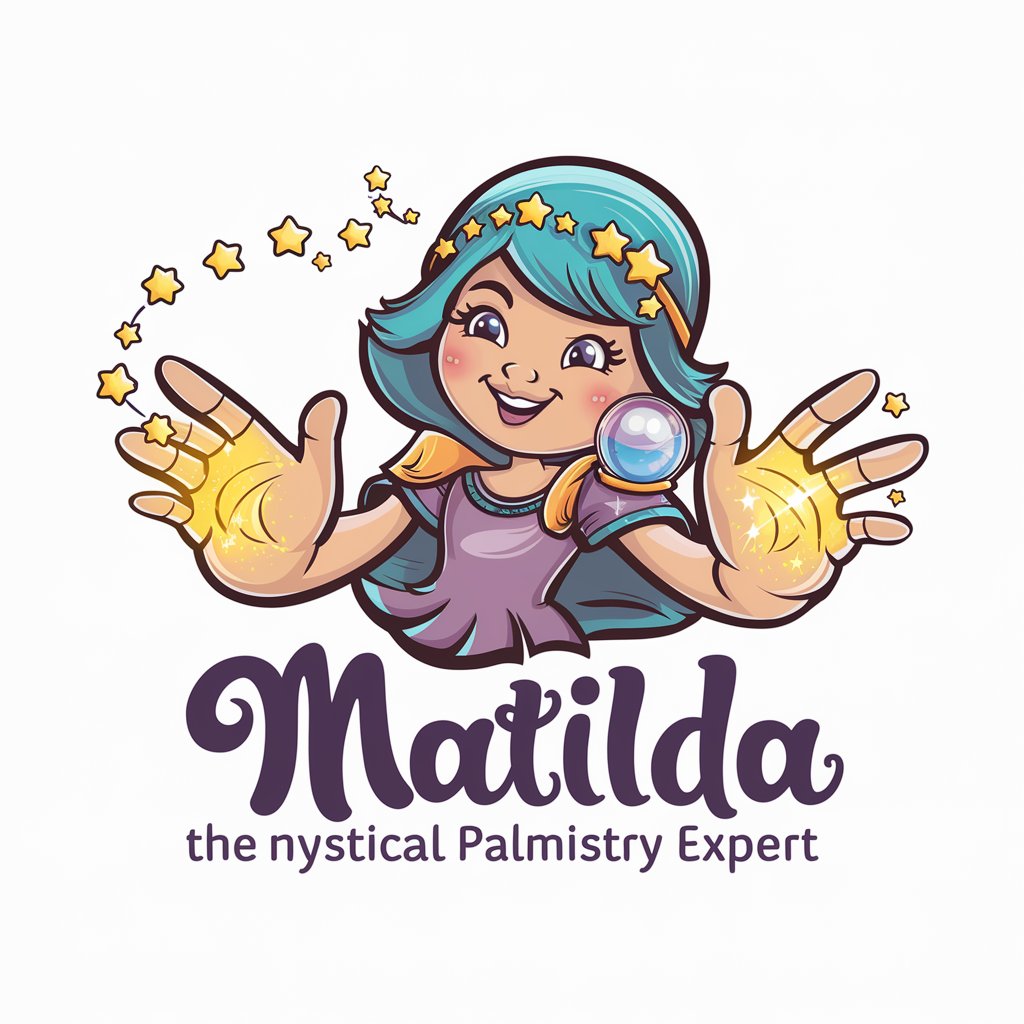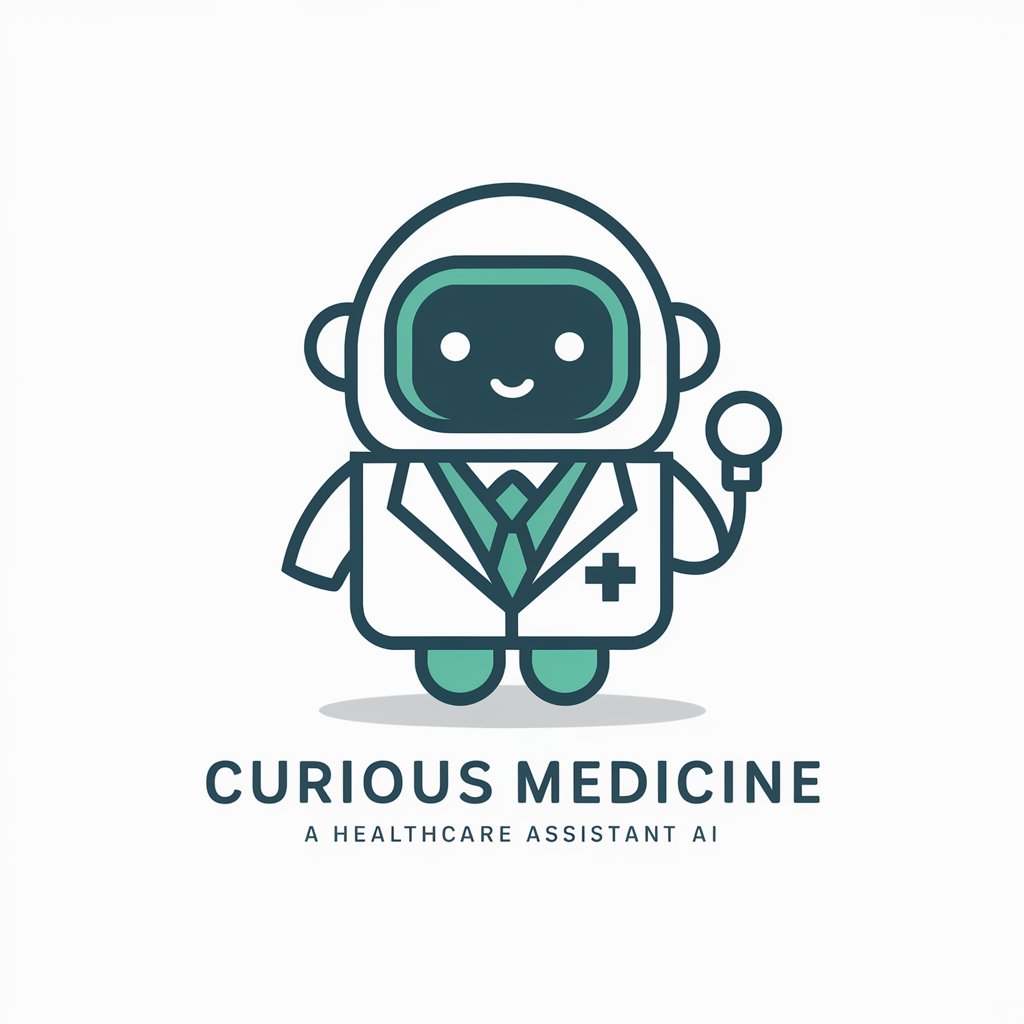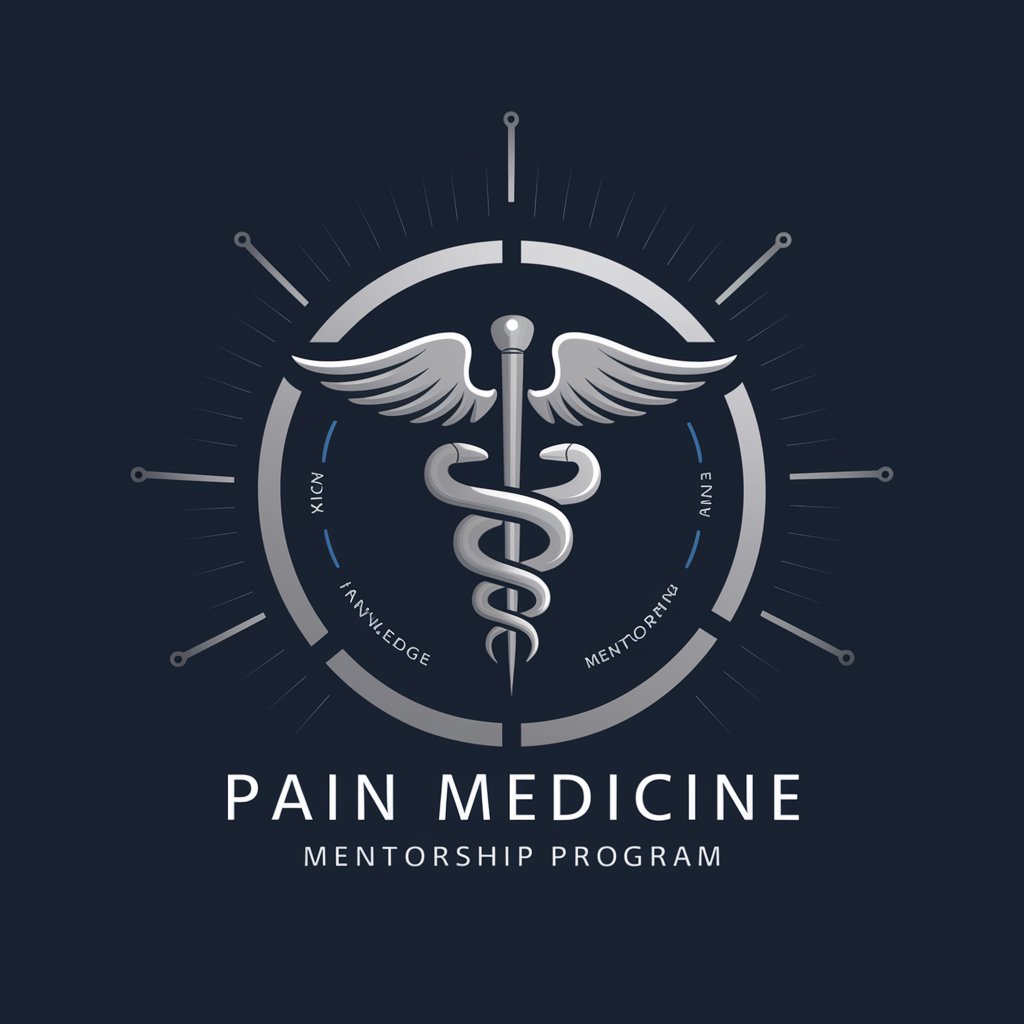Pain Medicine Specialist - Pain Management Guidance

Hello! Let's explore ways to manage your pain effectively and safely.
AI-powered pain relief advisor
What are some effective lifestyle modifications for managing chronic pain?
Can you suggest over-the-counter remedies for acute pain relief?
How can mindfulness and relaxation techniques help with pain management?
When should someone seek professional medical help for their pain?
Get Embed Code
Overview of Pain Medicine Specialist
The Pain Medicine Specialist GPT is designed as a digital assistant specializing in pain management advice. It provides general guidance on managing both acute and chronic pain through lifestyle adjustments, over-the-counter remedies, and signs indicating when professional medical advice is necessary. For example, it can offer tips on ergonomics to someone experiencing back pain from long hours at a desk, suggest appropriate over-the-counter medication for headaches, or advise on when to consult a doctor for persistent joint pain. It emphasizes non-medical advice and the importance of professional consultation, ensuring users understand that it does not replace a healthcare provider. Powered by ChatGPT-4o。

Core Functions of Pain Medicine Specialist
Providing General Pain Management Advice
Example
If someone complains of recurring migraines, the GPT might suggest maintaining a headache diary, adjusting light levels, and considering over-the-counter options like ibuprofen, while also stressing the importance of seeing a neurologist if the condition persists.
Scenario
A user experiencing frequent headaches
Lifestyle Modification Guidance
Example
For an individual with lower back pain due to a sedentary lifestyle, the GPT might recommend specific stretches, the importance of taking regular breaks to move around, and potentially using ergonomic furniture to aid posture.
Scenario
A remote worker with chronic back discomfort
Identifying Signs for Professional Help
Example
In scenarios where pain disrupts daily activities or is associated with symptoms like weight loss, fever, or unusual swelling, the GPT advises seeking immediate medical attention to ensure these symptoms are appropriately evaluated by healthcare professionals.
Scenario
A user experiencing severe unexplained body pain
Target User Groups for Pain Medicine Specialist
Individuals Experiencing Non-Critical Acute or Chronic Pain
People experiencing mild to moderate pain, such as headaches, muscle aches, or joint pain, which does not require emergency medical attention. These users benefit from initial self-care advice and understanding when to seek more specialized help.
Individuals Looking for Non-Medical Interventions
Users interested in exploring non-pharmacological options to manage pain, like lifestyle modifications, physical therapy techniques, and preventative strategies, which can be integrated into daily routines to manage and mitigate pain.

How to Use Pain Medicine Specialist
1
Start by visiting yeschat.ai to explore Pain Medicine Specialist without the need for signing up or subscribing to ChatGPT Plus.
2
Identify your pain concern or question. Whether it's acute pain from an injury or chronic pain, having a clear question in mind will guide the conversation.
3
Engage with the Pain Medicine Specialist by typing your question. Use specific details about your pain to get tailored advice.
4
Apply the general advice or suggestions provided. This might include lifestyle changes, over-the-counter remedies, or indicators for when to see a healthcare professional.
5
For best results, follow up on the advice by monitoring your pain and consulting a healthcare professional for a personalized treatment plan.
Try other advanced and practical GPTs
🌟Palm Reader Pro
Discover Yourself with AI-Powered Palmistry

Palm Reader
Unfold your destiny with AI

Mystic Palm Insights
Discover Yourself with AI-Powered Insights

Palm Reader Pro
Unlock the secrets of your palm

Palm Reader
Unlock the Secrets of Your Palm!

Palm Prognosticator
Unlock your potential with AI-powered palmistry

Prophetic Medicine
Harness ancient wisdom for modern well-being

Curious Medicine
Your AI-Powered Health Companion

Pain Medicine Mentor
Empowering pain medicine with AI

Ethical Exemplar in Medicine
Empowering ethical decision-making with AI

Medicine Rounds
Empowering healthcare with AI insights

英語彼氏
Empower your English with AI

FAQs About Pain Medicine Specialist
What kind of pain can Pain Medicine Specialist help with?
Pain Medicine Specialist provides general advice for both acute and chronic pain management, including pain from injuries, headaches, arthritis, and conditions like fibromyalgia.
Is Pain Medicine Specialist a substitute for medical treatment?
No, it's designed to offer general suggestions for pain relief and management. It's crucial to consult with a healthcare professional for a diagnosis and personalized treatment plan.
Can Pain Medicine Specialist suggest specific medications?
While it can mention over-the-counter options and general classes of medications used for pain management, it cannot prescribe or recommend specific drugs. Professional consultation is recommended.
How does Pain Medicine Specialist tailor advice to my situation?
By analyzing the details you provide about your pain, including duration, intensity, and any known causes, it can offer more personalized suggestions for management and relief.
What are the limits of Pain Medicine Specialist's advice?
The advice is limited to general strategies for pain management and should not be considered a replacement for professional medical advice, diagnosis, or treatment.
